Pediatric Vision
How Sleep Affects Kids' Eye Health
FSDAVCFEBFEVSDDVFSD
FSDAVCFEBFEVSDDVFSD
FSDAVCFEBFEVSDDVFSD
Why Sleep Matters for Vision
Adequate sleep is vital for a child’s overall development, but many parents don’t realize how significantly it can impact their child’s eyesight. As children grow, their eyes undergo complex development processes that require restorative sleep to function optimally. Sleep helps regulate hormones that affect eye growth, reduces stress on the visual system, and supports the healthy development of the retina.
Disrupted or insufficient sleep can interfere with these processes, leading to potential problems like dry eyes, poor focusing ability, and even the progression of nearsightedness (myopia). Just like proper nutrition and physical activity, good sleep hygiene plays a key role in long-term pediatric eye health.
Adequate sleep is vital for a child’s overall development, but many parents don’t realize how significantly it can impact their child’s eyesight. As children grow, their eyes undergo complex development processes that require restorative sleep to function optimally. Sleep helps regulate hormones that affect eye growth, reduces stress on the visual system, and supports the healthy development of the retina.
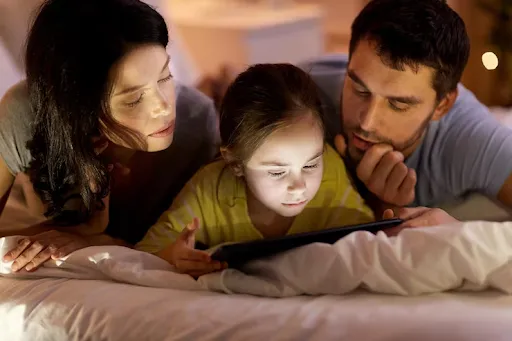
Disrupted or insufficient sleep can interfere with these processes, leading to potential problems like dry eyes, poor focusing ability, and even the progression of nearsightedness (myopia). Just like proper nutrition and physical activity, good sleep hygiene plays a key role in long-term pediatric eye health.

Link Between Sleep and Myopia
Research shows a strong connection between poor sleep habits and an increased risk of developing myopia in children. Kids who go to bed late, have irregular sleep schedules, or consistently sleep fewer than 8 hours a night are more likely to experience a faster progression of nearsightedness.
One possible explanation is that insufficient sleep may lead to changes in dopamine regulation in the retina, which is linked to eye growth. Overstimulation from screens, especially before bedtime, can also delay melatonin production, disrupting the natural circadian rhythm and putting additional strain on the eyes.
Pediatric eye exams can help detect early signs of vision issues that may be influenced by sleep. During these exams, optometrists evaluate not only visual acuity but also eye coordination, focusing skills, and lifestyle factors that could be contributing to problems. Identifying patterns early allows for myopia control strategies such as Ortho-K lenses or daily-use myopia control contacts, which can reduce progression in at-risk children.
Parents should monitor both screen time and sleep schedules as part of a broader effort to preserve healthy eyesight during these critical years of development.
Symptoms to Watch For
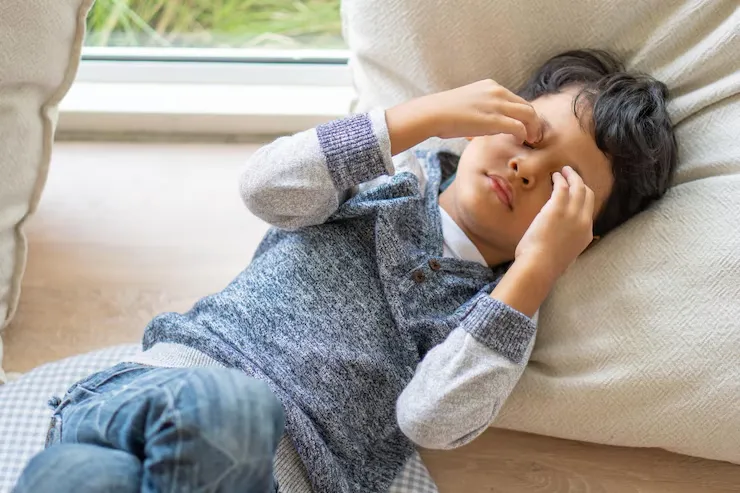
Children lacking quality sleep often show subtle vision or behavioral changes. Frequent eye rubbing, squinting, or headaches after reading or using digital devices can signal eye strain. These issues may worsen with poor sleep, as rest is essential for recovery. The impact of Screen Time on Children's Vision adds to this strain, making it important to monitor screen use, encourage regular breaks, and ensure proper sleep to support healthy visual development.

In addition to vision-related issues, poor sleep can lead to increased daytime fatigue, affecting a child’s ability to concentrate and perform well in school. Fatigued eyes are more prone to strain, which may accelerate the progression of myopia, especially during critical developmental years. Addressing sleep hygiene and encouraging proper rest are essential steps in supporting both visual health and overall well-being, ensuring children can thrive academically and maintain healthy eyesight.
Addressing vision-related symptoms in children begins with a visit to an optometrist. Regular pediatric eye exams can detect early signs of visual stress, often tied to lifestyle factors like irregular sleep patterns. Early intervention is particularly crucial if a child is showing signs of nearsightedness, as proactive management can help reduce future risks of severe complications such as retinal detachment or glaucoma. An optometrist can provide tailored recommendations to address these concerns, ensuring a child’s vision remains healthy and supported.
Establishing healthy sleep habits plays an equally vital role in managing and preventing vision issues. Creating a consistent bedtime routine and ensuring children get 9–11 hours of sleep each night, depending on their age, can significantly improve eye health. Reducing screen exposure at least an hour before bedtime and using blue-light-blocking glasses for evening device use can further minimize strain. These simple adjustments not only protect visual health but also enhance overall mood, focus, and well-being, allowing children to thrive both academically and personally.
Practical Sleep Tips for Parents
Creating a consistent sleep routine starts with structure. Encourage a regular bedtime for your child, even on weekends, and introduce a calming evening routine. Activities such as reading or quiet play help signal to the body that it’s time to wind down. Avoid stimulating content or screen time right before sleep, as the blue light from digital devices can delay melatonin production, making it harder to fall asleep.
The sleep environment also plays a key role. Dim the lights in the hour before bedtime and ensure the sleep area is cool, quiet, and comfortable. A soothing environment helps your child’s body recognize it’s time for rest. Establishing these habits supports overall development, including eye health. Proper sleep is essential for children’s physical and cognitive growth, ensuring they feel refreshed and ready to take on the day, with optimal visual function and well-being.
The Role of Vision Exams
Even if your child shows no obvious signs of vision problems, routine eye exams are essential during their formative years. Sleep-related eye strain or early myopia might not be easily noticeable, but these issues can be detected through a comprehensive eye exam.
Kleinwood Vision provides specialized pediatric eye care, focusing on children's unique visual development stages. Our exams assess visual acuity, eye alignment, and any environmental or behavioral factors, such as poor sleep, that may affect vision.
Even if your child shows no obvious signs of vision problems, routine eye exams are essential during their formative years. Sleep-related eye strain or early myopia might not be easily noticeable, but these issues can be detected through a comprehensive eye exam.
Kleinwood Vision provides specialized pediatric eye care, focusing on children's unique visual development stages. Our exams assess visual acuity, eye alignment, and any environmental or behavioral factors, such as poor sleep, that may affect vision.
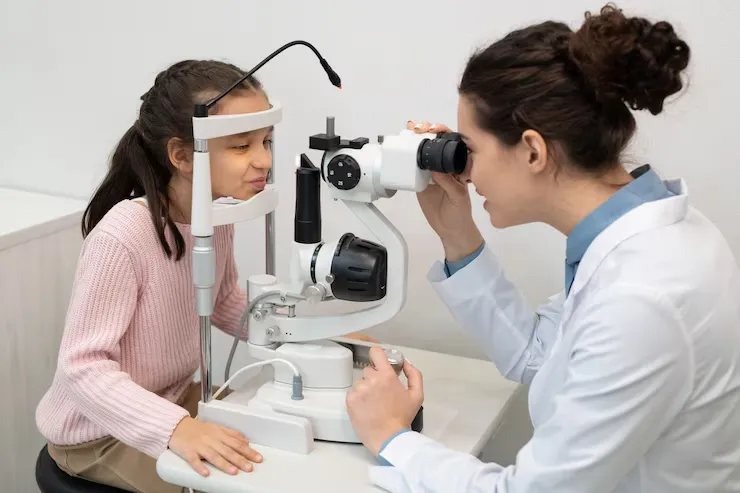

By combining clinical evaluations with insights into your child's lifestyle, we help parents create proactive plans to support their child’s vision now and in the future. Regular eye exams can ensure early detection and prevent future complications, promoting healthier vision for your child’s overall development.
Building Healthy Sleep and Vision Habits
Fostering good habits is essential for healthy eye development in children, alongside clinical care. A combination of adequate sleep, controlled screen exposure, and routine eye exams forms the foundation of pediatric vision health. Start by educating your child about the importance of rest and visual breaks. These simple yet effective habits can significantly reduce eye strain and improve overall eye health.
Encouraging outdoor play during daylight hours is crucial, as natural light helps reduce the risk of myopia (nearsightedness). Studies show that exposure to natural light not only supports eye development but also helps prevent excessive near-focus, which can lead to strain. Limiting recreational screen time to under two hours per day, and breaking it into smaller sessions, ensures that their eyes get the necessary breaks to avoid fatigue and strain.
For children who already wear glasses or contacts, it’s important to ensure their prescription is up to date. Wearing the wrong prescription can cause additional strain, leading to discomfort and compromised vision. Routine checkups with an eye care professional help ensure their vision is properly managed.
At Kleinwood Vision, we work closely with families to implement myopia control options, which help maintain clearer vision as children grow. By focusing on sleep habits, limiting screen time, encouraging outdoor activities, and ensuring regular eye exams, you’re setting your child up for long-term eye health. These steps will help support your child’s visual development, reducing the risk of future vision problems and promoting stronger, healthier eyes as they reach adolescence and beyond.
Why Early Action Matters
Addressing sleep-related eye issues early in childhood leads to better outcomes. Since the visual system is still developing, untreated problems like eye strain or poor focusing can become permanent. Early intervention helps prevent complications that could affect your child's vision in the long term.
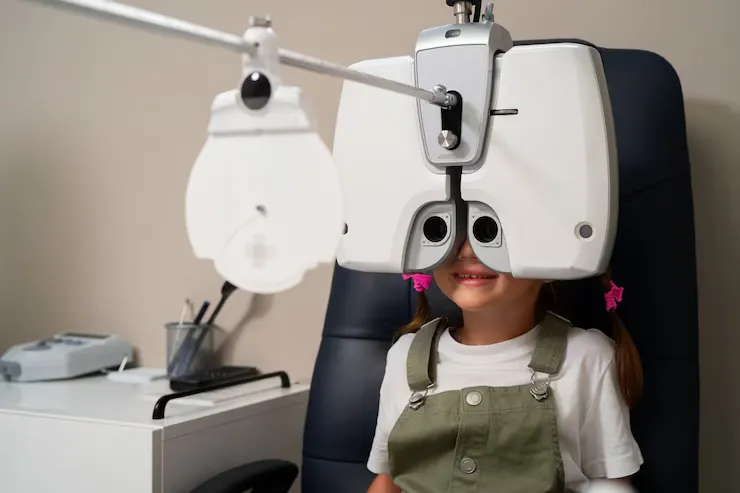
Addressing sleep-related eye issues early in childhood leads to better outcomes. Since the visual system is still developing, untreated problems like eye strain or poor focusing can become permanent. Early intervention helps prevent complications that could affect your child's vision in the long term.
Poor sleep can have more than just a fatigue impact—it can hinder eye growth and increase the risk of serious visual disorders. If your child experiences difficulty seeing the board at school, frequent squinting, or shows behavioral changes linked to tiredness, it's crucial to act promptly. Don’t wait for the next checkup; schedule an eye exam as soon as possible.
Poor sleep can have more than just a fatigue impact—it can hinder eye growth and increase the risk of serious visual disorders. If your child experiences difficulty seeing the board at school, frequent squinting, or shows behavioral changes linked to tiredness, it's crucial to act promptly. Don’t wait for the next checkup; schedule an eye exam as soon as possible.
Regular eye exams and early interventions are key to slowing or halting the progression of conditions like myopia. Prioritizing sleep and eye care together emphasizes how these factors are interlinked and essential for your child's overall health and well-being.
Supporting Lifelong Vision Health
Healthy vision begins with healthy habits, and ensuring your child gets enough sleep is a key component of this. By making sleep a priority and incorporating vision care into their daily routine, you can help prevent many avoidable eye problems. Educating your child about the importance of rest and taking regular visual breaks from screens will support both their overall health and their eye development.
At Kleinwood Vision, we’re committed to supporting families with personalized care. We offer guidance on maintaining healthy vision habits, along with early detection and treatment plans tailored to the unique needs of growing children. By working together, we can ensure that your child’s vision stays on track for years to come, minimizing potential issues and promoting optimal eye health. Let us help you prioritize your child’s vision and overall well-being today.

Contact Info
Hours of Operation
Mon - Fri | 9:00 AM - 5:00 PM
Sat - Sun | Closed
Holiday Hours: We are closed for the following holidays: New Years Day, Memorial Day, Independence Day, Labor Day, Thanksgiving Day, Christmas Day
© 2026 Kleinwood Vision. All rights Reserved.

